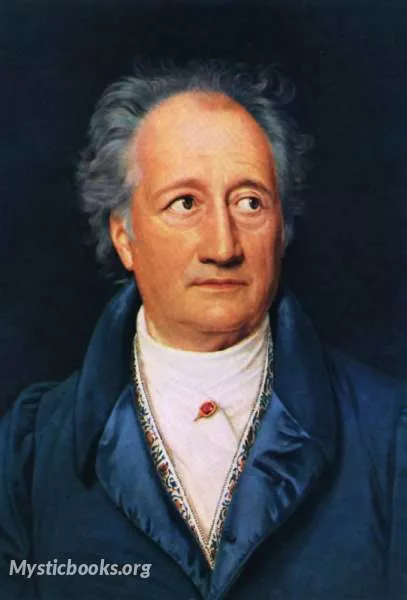
Timeline
Title
Country/Nationality
Johann Wolfgang von Goethe
Johann Wolfgang von Goethe was a German poet, playwright, novelist, scientist, statesman, theatre director, critic, and amateur artist. His works include: four novels; epic and lyric poetry; prose and verse dramas; memoirs; an autobiography; literary and aesthetic criticism; and treatises on botany, anatomy, and colour. He is considered to be the greatest German literary figure of the modern era.
A literary celebrity by the age of 25, Goethe was ennobled by the Duke of Saxe-Weimar, Karl August, in 1782 after taking up residence in Weimar in November 1775 following the success of his first novel, The Sorrows of Young Werther (1774). He was an early participant in the Sturm und Drang literary movement. During his first ten years in Weimar, Goethe became a member of the Duke's Privy Council, sat on the war and highway commissions, oversaw the reopening of silver mines in nearby Ilmenau, and implemented a series of administrative reforms at the University of Jena. He also contributed to the planning of Weimar's botanical park and the rebuilding of its Ducal Palace.
Goethe's first major scientific work, the Metamorphosis of Plants, was published after he returned from a 1788 tour of Italy. In 1791 he was made managing director of the theatre at Weimar, and in 1794 he began a friendship with the dramatist, historian, and philosopher Friedrich Schiller, whose plays he premiered until Schiller's death in 1805. During this period Goethe published his second novel, Wilhelm Meister's Apprenticeship; the verse epic Hermann and Dorothea, and, in 1808, the first part of his most celebrated drama, Faust. His conversations and various shared undertakings throughout the 1790s with Schiller, Johann Gottlieb Fichte, Johann Gottfried Herder, Alexander von Humboldt, Wilhelm von Humboldt, and August and Friedrich Schlegel have come to be collectively termed Weimar Classicism.
The German philosopher Arthur Schopenhauer named Wilhelm Meister's Apprenticeship one of the four greatest novels ever written, while the American philosopher and essayist Ralph Waldo Emerson selected Goethe as one of six "representative men" in his work of the same name (along with Plato, Emanuel Swedenborg, Montaigne, Napoleon, and Shakespeare). Goethe's comments and observations form the basis of several biographical works, notably Johann Peter Eckermann's Conversations with Goethe (1836).
Goethe's father, Johann Caspar Goethe, lived with his family in a large house (today the Goethe House) in Frankfurt, then an Imperial Free City of the Holy Roman Empire. Though he had studied law in Leipzig and had been appointed Imperial Councillor, Johann Caspar Goethe was not involved in the city's official affairs. Johann Caspar married Goethe's mother, Catharina Elizabeth Textor, at Frankfurt on 20 August 1748, when he was 38 and she was 17. All their children, with the exception of Johann Wolfgang and his sister Cornelia Friederica Christiana (born in 1750), died at early ages.
In 1775, Goethe was invited, on the strength of his fame as the author of The Sorrows of Young Werther, to the court of Karl August, Duke of Saxe-Weimar-Eisenach, who would become Grand Duke in 1815. (The Duke at the time was 18 years of age, to Goethe's 26.) Goethe thus went to live in Weimar, where he remained for the rest of his life and where, over the course of many years, he held a succession of offices, including superintendent of the ducal library, as the Duke's friend and chief adviser.
In 1776, Goethe formed a close relationship to Charlotte von Stein, an older, married woman. The intimate bond with von Stein lasted for ten years, after which Goethe abruptly left for Italy without giving his companion any notice. She was emotionally distraught at the time, but they were eventually reconciled.
After 1793, Goethe devoted his endeavours primarily to literature. By 1820, Goethe was on amiable terms with Kaspar Maria von Sternberg. In 1823, having recovered from a near fatal heart illness, the 74-year-old Goethe fell in love with the teenaged Ulrike von Levetzow whom he wanted to marry, but because of the opposition of her mother he never proposed. Their last meeting in Carlsbad on 5 September 1823 inspired him to the famous Marienbad Elegy which he considered one of his finest works. During that time he also developed a deep emotional bond with the Polish pianist Maria Agata Szymanowska.
In 1821 Goethe's friend Carl Friedrich Zelter introduced him to the 12-year-old Felix Mendelssohn. Goethe, now in his seventies, was greatly impressed by the child, leading to perhaps the earliest confirmed comparison with Mozart in the following conversation between Goethe and Zelter:
"Musical prodigies ... are probably no longer so rare; but what this little man can do in extemporizing and playing at sight borders the miraculous, and I could not have believed it possible at so early an age." "And yet you heard Mozart in his seventh year at Frankfurt?" said Zelter. "Yes", answered Goethe, "... but what your pupil already accomplishes, bears the same relation to the Mozart of that time that the cultivated talk of a grown-up person bears to the prattle of a child."
Mendelssohn was invited to meet Goethe on several later occasions, and set a number of Goethe's poems to music. His other compositions inspired by Goethe include the overture Calm Sea and Prosperous Voyage (Op. 27, 1828), and the cantata Die erste Walpurgisnacht.
In 1832, Goethe died in Weimar of apparent heart failure. His last words, according to his doctor Carl Vogel, were, Mehr Licht! (More light!), but this is disputed as Vogel was not in the room at the moment Goethe died. He is buried in the Ducal Vault at Weimar's Historical Cemetery.
Books by Johann Wolfgang von Goethe
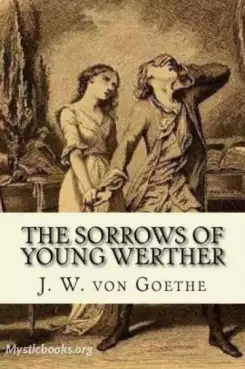
The Sorrows of Young Werther
The Sorrows of Young Werther is a loosely autobiographical epistolary novel by Johann Wolfgang von Goethe. First published in 1774, it reappeared as a revised edition in 1787. It was one of the most important novels in the Sturm und Drang period in G...
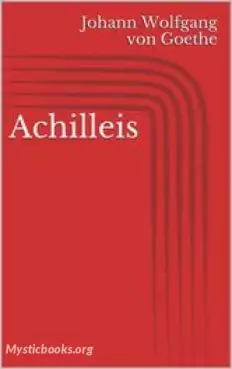
Achilleis
Achilleis von Johann Wolfgang von Goethe, entstanden 1797–99, veröffentlicht 1808. Als Goethe an dem Epos in Hexametern Hermann und Dorothea arbeitete, studierte er Homer in der Übersetzung von Johann Heinrich Voß. Dabei kam er darauf, dass zwischen...
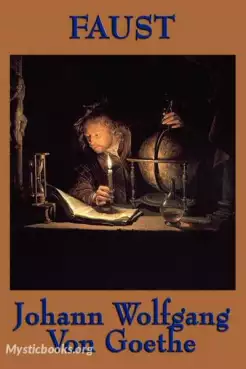
Faust I
Faust is a tragic play in two parts by Johann Wolfgang von Goethe, usually known in English as Faust, Part One and Faust, Part Two. Although rarely staged in its entirety, it is the play with the largest audience numbers on German-language stages. Fa...
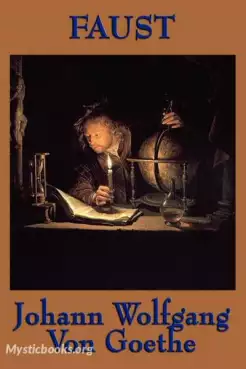
Faust II
Faust is a tragic play in two parts by Johann Wolfgang von Goethe, usually known in English as Faust, Part One and Faust, Part Two. Although rarely staged in its entirety, it is the play with the largest audience numbers on German-language stages. Fa...

Erotica Romana
Also known as the "Roman Elegies," Erotica Romana is von Goethe's literary tribute to human sexuality and eroticism. Written in 24 elegies to emulate classical Roman elegy writers such as Tibullus, Propertius, and Catullus, von Goethe creates a lyric...
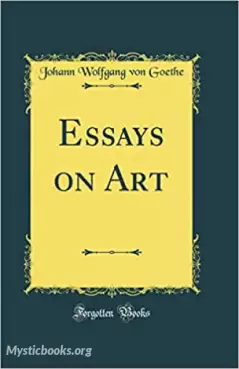
Essays on Art
Essays on art, letters, thoughts, aphorisms - Goethe's thoughts were dealing with artworks of every branch of arts. He addressed many aspects of the artistic process and described his impressions of works of arts - and even dilettantism - in his essa...
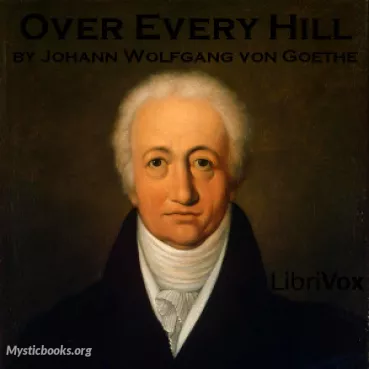
Over Every Hill
"Over every hill, there is a new adventure waiting for you." Over Every Hill is a collection of poems by Johann Wolfgang von Goethe, one of the most famous poets of the German language. The poems are about the journey of life, and they explore theme...
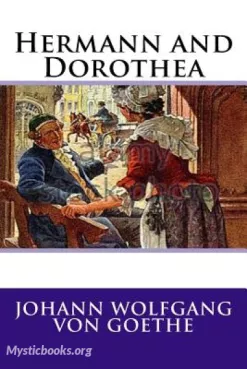
Hermann and Dorothea
Love blossoms amidst the chaos of the French Revolution. Hermann and Dorothea is an epic poem by Johann Wolfgang von Goethe, one of the greatest German poets of all time. The poem is set during the French Revolution, and it tells the story of the lo...
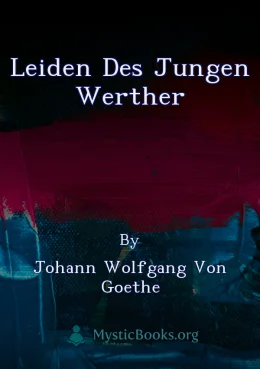
Leiden des jungen Werther
Die Leiden des jungen Werther beschreibt die unglückliche Liebe eines jungen Mannes (Werther) zu einer verlobten, später verheirateten Frau. Der Roman ist aus einer radikal subjektiven Perspektive geschrieben: er besteht nur aus Briefen von Werther v...
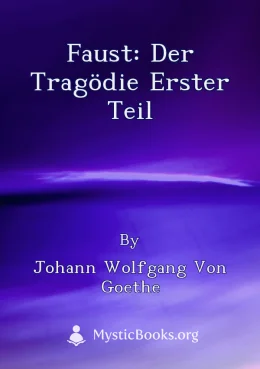
Faust: Der Tragödie erster Teil
Der erste Teil der Tragödie Faust, erstmals erschienen 1808, gilt als das bedeutendste und meistzitierte Werk der deutschen Literatur. Die Handlung spielt in Deutschland zur Wende des 16. Jahrhunderts, und bringt viele grundsätzliche gesellschaftlich...
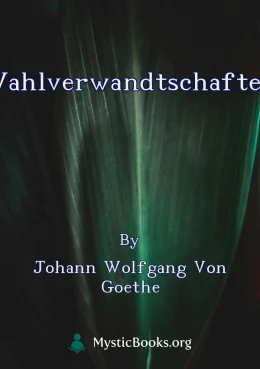
Wahlverwandtschaften
Der Roman ist ein typischer Vertreter der Weimarer Klassik. Goethe greift ein gesellschaftliches Thema auf und verbindet es mit einem naturwissenschaftlichen Gleichnis. Die gesellschaftlichen Zwänge von Sitte und Norm werden den individuellen Empfind...

Reineke Fuchs
Reineke Fuchs ist ein episches Gedicht, das von Johann Wolfgang von Goethe neu bearbeitet wurde. Es erzählt die Geschichte des gerissenen Fuchses Reineke, der durch List und Täuschung seine Ziele erreicht. Das Werk ist eine scharfsinnige Satire auf d...
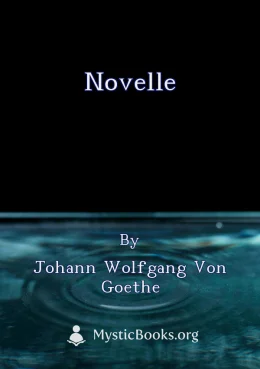
Novelle
This novella, often referred to as a tale of suspense, focuses on a princess's encounter with danger. During a leisurely horseback ride, she finds herself amidst a bustling marketplace where a chaotic fire breaks out, causing wild animals, including...
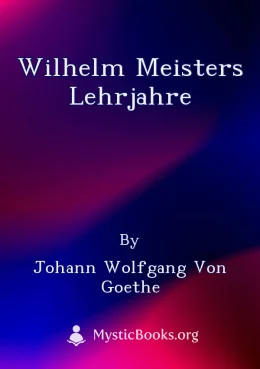
Wilhelm Meisters Lehrjahre
Wilhelm Meisters Lehrjahre ist ein Bildungsroman von Johann Wolfgang von Goethe, der im Jahr 1795/96 erschien. Der Roman erzählt die Geschichte von Wilhelm Meister, einem jungen Mann aus wohlhabendem Hause, der sich nach dem Tod seines Vaters mit ein...
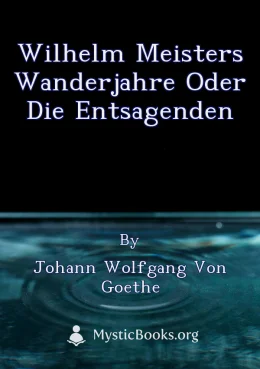
Wilhelm Meisters Wanderjahre oder die Entsagenden
Wilhelm Meisters Wanderjahre oder die Entsagenden ist ein Roman von Johann Wolfgang von Goethe, der 1821 in seiner ersten Fassung erschien. Der Roman gilt als die persönlichste aller Goetheschen Dichtungen. Er handelt von der Entwicklung des jungen W...
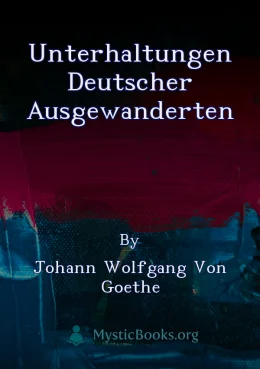
Unterhaltungen deutscher Ausgewanderten
Unterhaltungen deutscher Ausgewanderten is a collection of stories by Johann Wolfgang von Goethe, published in 1795. The novel's frame story, inspired by Boccaccio's Decameron, depicts a group of German exiles who have fled the turmoil of the French...
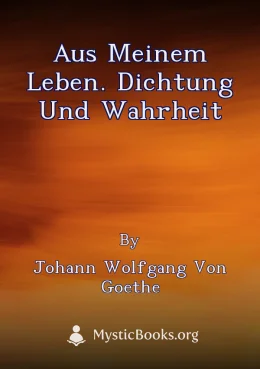
Aus meinem Leben. Dichtung und Wahrheit
Johann Wolfgang von Goethe's autobiography, "Aus meinem Leben. Dichtung und Wahrheit.", is a captivating account of his early life and formative experiences. Written between 1808 and 1831, the book offers a unique glimpse into the mind and heart of o...
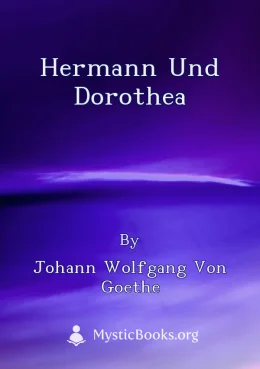
Hermann und Dorothea
Hermann und Dorothea ist ein episches Gedicht von Johann Wolfgang von Goethe, das im Jahr 1797 veröffentlicht wurde. Das Werk erzählt die Geschichte von Dorothea, einer jungen Frau, die mit ihren Eltern als Flüchtling aus dem vom Krieg geplagten Fran...
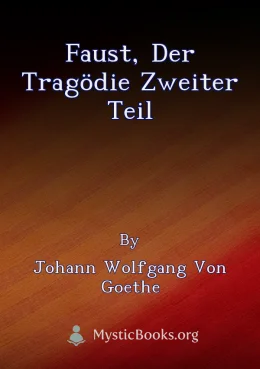
Faust, Der Tragödie zweiter Teil
"Faust, Der Tragödie zweiter Teil" by Johann Wolfgang von Goethe is a philosophical drama that explores the themes of good and evil, knowledge and power, and the human condition. The play follows the story of Faust, a brilliant scholar who sells his...
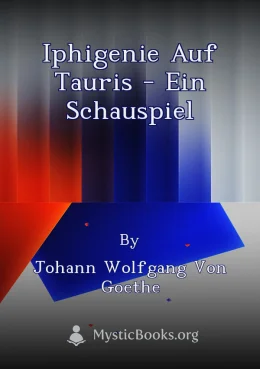
Iphigenie auf Tauris - Ein Schauspiel
Iphigenie auf Tauris ist ein klassisches Drama, das von Johann Wolfgang von Goethe geschrieben wurde. Es basiert auf der griechischen Mythologie und erzählt die Geschichte von Iphigenie, der Tochter des Agamemnon, die in Tauris geopfert werden soll....
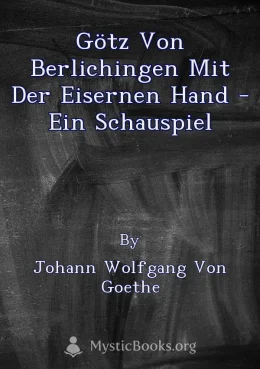
Götz von Berlichingen mit der eisernen Hand - Ein Schauspiel
Götz von Berlichingen mit der eisernen Hand is a historical play by Johann Wolfgang von Goethe, exploring the life of the real-life knight Götz von Berlichingen. The play delves into the turbulent political landscape of 16th-century Germany, where fe...
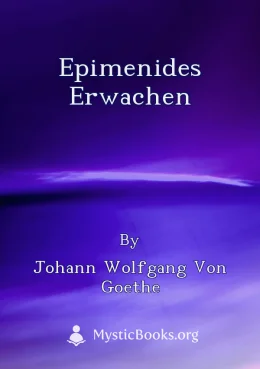
Epimenides Erwachen
Goethes *Epimenides Erwachen* ist ein lyrisches Gedicht, das sich mit dem Thema des Erwachens und der Konfrontation mit der eigenen Existenz beschäftigt. Das Gedicht erzählt die Geschichte von Epimenides, einem griechischen Dichter und Seher, der in...
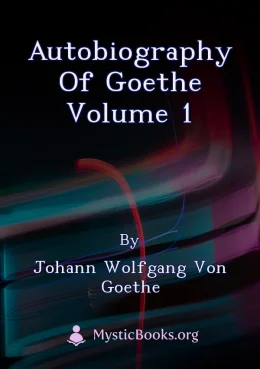
Autobiography of Goethe Volume 1
This volume presents the first part of Johann Wolfgang von Goethe's autobiography, originally titled 'Truth and Fiction' or 'Truth and Poetry.' It chronicles the early life of the celebrated German writer, covering his childhood, youth, and initial a...
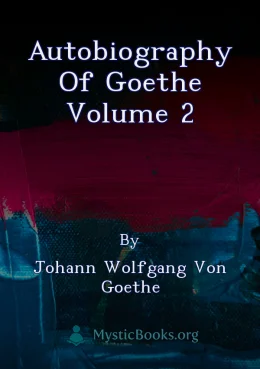
Autobiography of Goethe Volume 2
Goethe's *Autobiography*, a two-volume work, offers an intimate and insightful chronicle of his life and experiences, spanning from his youth to his maturity. The second volume picks up where the first leaves off, delving into his years in Weimar, hi...
Showing 1 to 24 of 35 results